-
 Bitcoin
Bitcoin $90,752.5471
4.27% -
 Ethereum
Ethereum $1,688.3053
6.41% -
 Tether USDt
Tether USDt $1.0006
0.08% -
 XRP
XRP $2.1453
3.23% -
 BNB
BNB $607.1447
1.71% -
 Solana
Solana $144.2444
7.14% -
 USDC
USDC $0.9997
-0.01% -
 Dogecoin
Dogecoin $0.1703
8.31% -
 TRON
TRON $0.2467
1.46% -
 Cardano
Cardano $0.6557
5.58% -
 Chainlink
Chainlink $13.7511
5.08% -
 Avalanche
Avalanche $21.5976
7.79% -
 UNUS SED LEO
UNUS SED LEO $8.9863
-1.47% -
 Stellar
Stellar $0.2566
1.55% -
 Sui
Sui $2.3975
10.43% -
 Shiba Inu
Shiba Inu $0.0...01300
5.63% -
 Toncoin
Toncoin $2.9806
2.64% -
 Hedera
Hedera $0.1760
4.31% -
 Bitcoin Cash
Bitcoin Cash $355.4488
3.40% -
 Litecoin
Litecoin $82.9174
5.86% -
 Hyperliquid
Hyperliquid $18.6132
6.14% -
 Polkadot
Polkadot $3.8737
1.18% -
 Dai
Dai $0.9998
0.01% -
 Bitget Token
Bitget Token $4.5191
1.97% -
 Ethena USDe
Ethena USDe $0.9996
0.04% -
 Pi
Pi $0.6386
1.01% -
 Monero
Monero $220.4697
3.17% -
 Pepe
Pepe $0.0...08356
7.90% -
 Uniswap
Uniswap $5.5839
5.52% -
 Aptos
Aptos $5.0800
1.52%
How to buy UNI coin? Graphic tutorial of the steps of buying and selling UNI coin
To acquire UNI coins, select an exchange that offers them, establish an account, fund it, place a buy order, and securely store them in an exchange wallet, hardware wallet, or software wallet.
Oct 02, 2024 at 07:35 pm

How to buy UNI coin - Graphic tutorial of the steps of buying and selling UNI coin
Step 1. Pick an exchange that offers UNI
Examples:
- Binance
- Coinbase
- Gemini
Step 2. Create an account on the exchange
Follow the prompts to create an account, and provide the required information
Step 3. Fund your account
- Deposit funds directly from a bank account
- Deposit funds from another cryptocurrency exchange
- Purchase cryptocurrency with a credit or debit card
Step 4. Place an order to buy UNI
Navigate to the exchange's trading platform and search for UNI
- Choose the type of order you want to place (e.g., market order, limit order)
- Specify the amount of UNI you wish to buy
Step 5. Store your UNI coins
- Exchange wallet: Leave your coins on the exchange
- Hardware wallet: Purchase a hardware wallet and send your coins to the wallet's address
- Software wallet: Install a software wallet on your computer or mobile device and send your coins to the wallet's address
Steps 6. Optionally, sell your UNI coins.
- Navigate to the exchange's trading platform and find the UNI/USD trading pair
- Place an order to sell UNI
- Select your desired order type, quantity, and price.
Disclaimer:info@kdj.com
The information provided is not trading advice. kdj.com does not assume any responsibility for any investments made based on the information provided in this article. Cryptocurrencies are highly volatile and it is highly recommended that you invest with caution after thorough research!
If you believe that the content used on this website infringes your copyright, please contact us immediately (info@kdj.com) and we will delete it promptly.
- How Much Could $2,000 in Ripple (XRP) Be Worth at the Peak of the Bull Run?
- 2025-04-23 02:00:20
- Mind of Pepe (MIND) Token Presale Sells Out Ahead of Listing, Promises AI-Powered Meme Coin Experience
- 2025-04-23 02:00:20
- Galaxy Digital Moves $105M Worth of Ethereum to Solana
- 2025-04-23 01:55:12
- A major whale has made a significant move in the Mantra (OM) market
- 2025-04-23 01:55:12
- World of Women (WoW) Prepares to Enchant the World Once Again with its Flagship Event: the WoW Gala Lisboa
- 2025-04-23 01:50:12
- Onyxcoin (XCN) Has Plunged by 15% in the Past Week and Is Poised to Extend Its Decline as Selloffs Strengthen
- 2025-04-23 01:50:12
Related knowledge
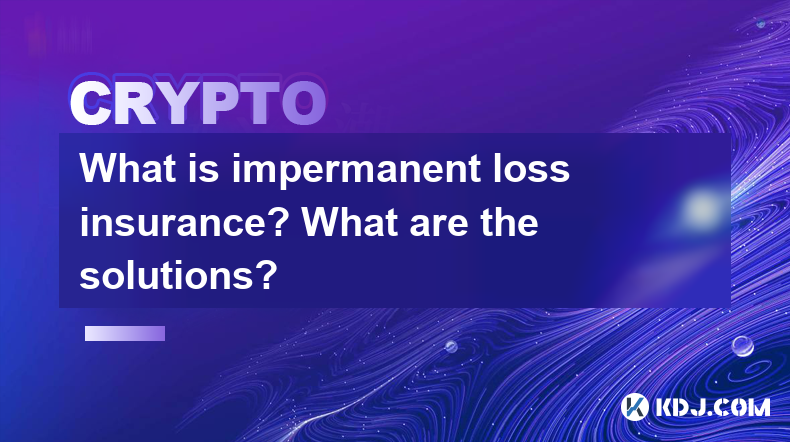
What is impermanent loss insurance? What are the solutions?
Apr 12,2025 at 01:14am
What is Impermanent Loss Insurance? What are the Solutions? Impermanent loss is a significant concern for liquidity providers in decentralized finance (DeFi) platforms. It occurs when the price of tokens in a liquidity pool changes compared to when they were deposited, leading to a potential loss if the provider decides to withdraw their liquidity. To m...
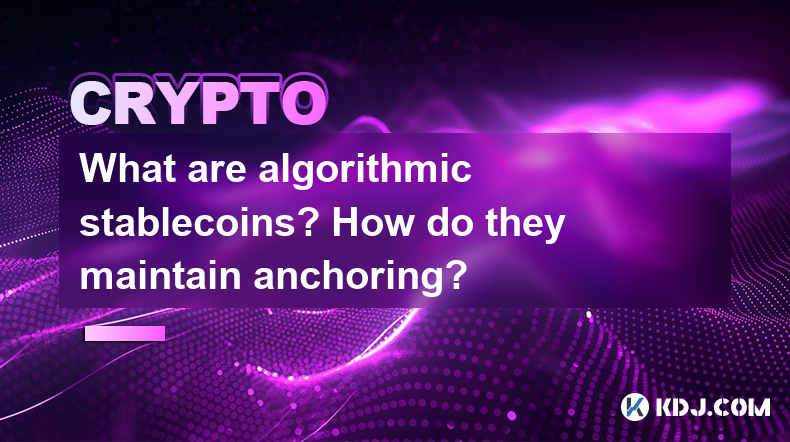
What are algorithmic stablecoins? How do they maintain anchoring?
Apr 12,2025 at 11:35am
Algorithmic stablecoins represent a fascinating and innovative segment within the cryptocurrency ecosystem. These digital assets are designed to maintain a stable value, typically pegged to a fiat currency like the US dollar, through the use of algorithms rather than traditional collateral. This approach distinguishes them from other types of stablecoin...
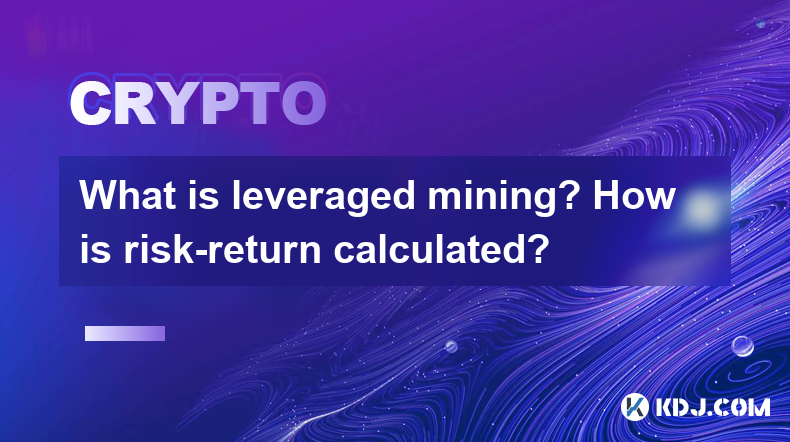
What is leveraged mining? How is risk-return calculated?
Apr 11,2025 at 04:07pm
What is Leveraged Mining? How is Risk-Return Calculated? Leveraged mining is a strategy used in the cryptocurrency space where miners borrow funds to increase their mining capacity and potential returns. This approach can amplify both profits and losses, making it a high-risk, high-reward endeavor. Understanding how to calculate the risk and return asso...
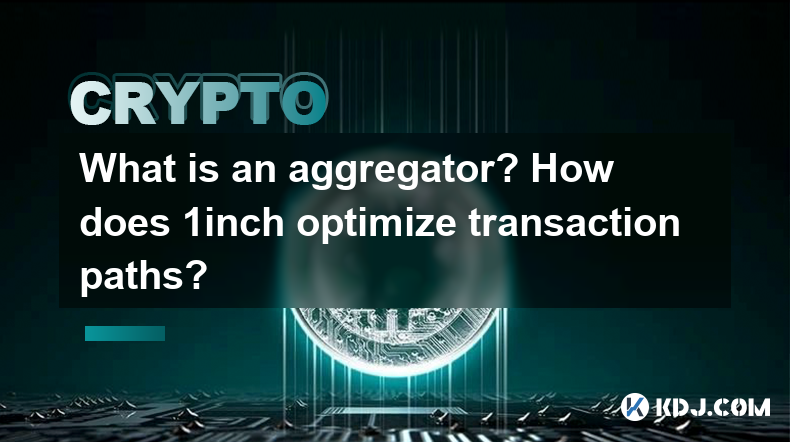
What is an aggregator? How does 1inch optimize transaction paths?
Apr 12,2025 at 05:00pm
An aggregator in the cryptocurrency space is a tool that compiles and compares data from multiple decentralized exchanges (DEXs) to find the best possible trading routes and prices for users. Aggregators are essential for traders looking to optimize their transactions, as they can automatically search through various liquidity sources to ensure the most...
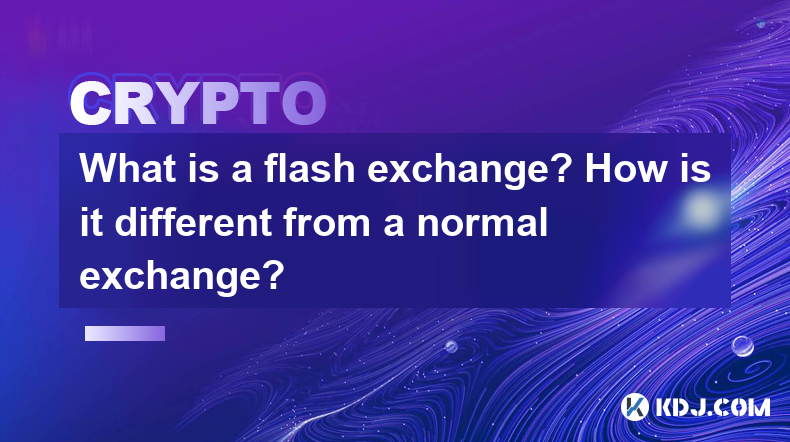
What is a flash exchange? How is it different from a normal exchange?
Apr 16,2025 at 03:43pm
A flash exchange, also known as a flash swap, is a relatively new concept within the cryptocurrency space that has gained significant attention due to its innovative approach to trading. Unlike traditional exchanges, flash exchanges leverage the power of decentralized finance (DeFi) protocols to enable instant, collateral-free trades. In this article, w...
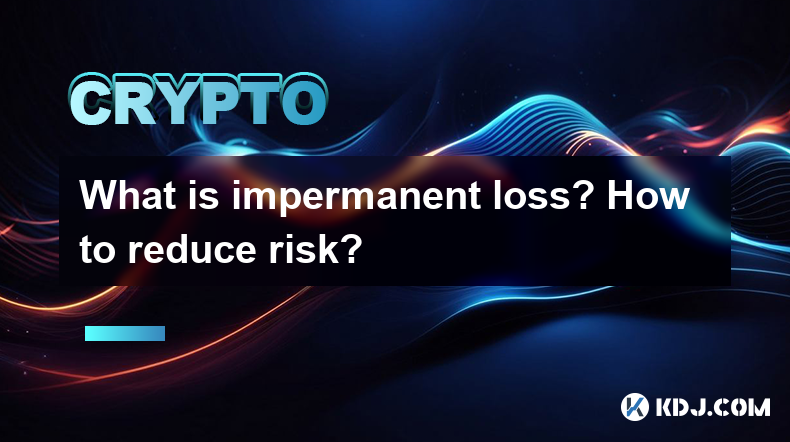
What is impermanent loss? How to reduce risk?
Apr 16,2025 at 11:14pm
What is Impermanent Loss? How to Reduce Risk? Impermanent loss is a term that frequently surfaces in the world of decentralized finance (DeFi), particularly when discussing liquidity provision on automated market makers (AMMs) like Uniswap or SushiSwap. Understanding this concept is crucial for anyone looking to engage in liquidity provision, as it dire...

What is impermanent loss insurance? What are the solutions?
Apr 12,2025 at 01:14am
What is Impermanent Loss Insurance? What are the Solutions? Impermanent loss is a significant concern for liquidity providers in decentralized finance (DeFi) platforms. It occurs when the price of tokens in a liquidity pool changes compared to when they were deposited, leading to a potential loss if the provider decides to withdraw their liquidity. To m...

What are algorithmic stablecoins? How do they maintain anchoring?
Apr 12,2025 at 11:35am
Algorithmic stablecoins represent a fascinating and innovative segment within the cryptocurrency ecosystem. These digital assets are designed to maintain a stable value, typically pegged to a fiat currency like the US dollar, through the use of algorithms rather than traditional collateral. This approach distinguishes them from other types of stablecoin...

What is leveraged mining? How is risk-return calculated?
Apr 11,2025 at 04:07pm
What is Leveraged Mining? How is Risk-Return Calculated? Leveraged mining is a strategy used in the cryptocurrency space where miners borrow funds to increase their mining capacity and potential returns. This approach can amplify both profits and losses, making it a high-risk, high-reward endeavor. Understanding how to calculate the risk and return asso...

What is an aggregator? How does 1inch optimize transaction paths?
Apr 12,2025 at 05:00pm
An aggregator in the cryptocurrency space is a tool that compiles and compares data from multiple decentralized exchanges (DEXs) to find the best possible trading routes and prices for users. Aggregators are essential for traders looking to optimize their transactions, as they can automatically search through various liquidity sources to ensure the most...

What is a flash exchange? How is it different from a normal exchange?
Apr 16,2025 at 03:43pm
A flash exchange, also known as a flash swap, is a relatively new concept within the cryptocurrency space that has gained significant attention due to its innovative approach to trading. Unlike traditional exchanges, flash exchanges leverage the power of decentralized finance (DeFi) protocols to enable instant, collateral-free trades. In this article, w...

What is impermanent loss? How to reduce risk?
Apr 16,2025 at 11:14pm
What is Impermanent Loss? How to Reduce Risk? Impermanent loss is a term that frequently surfaces in the world of decentralized finance (DeFi), particularly when discussing liquidity provision on automated market makers (AMMs) like Uniswap or SushiSwap. Understanding this concept is crucial for anyone looking to engage in liquidity provision, as it dire...
See all articles























































































